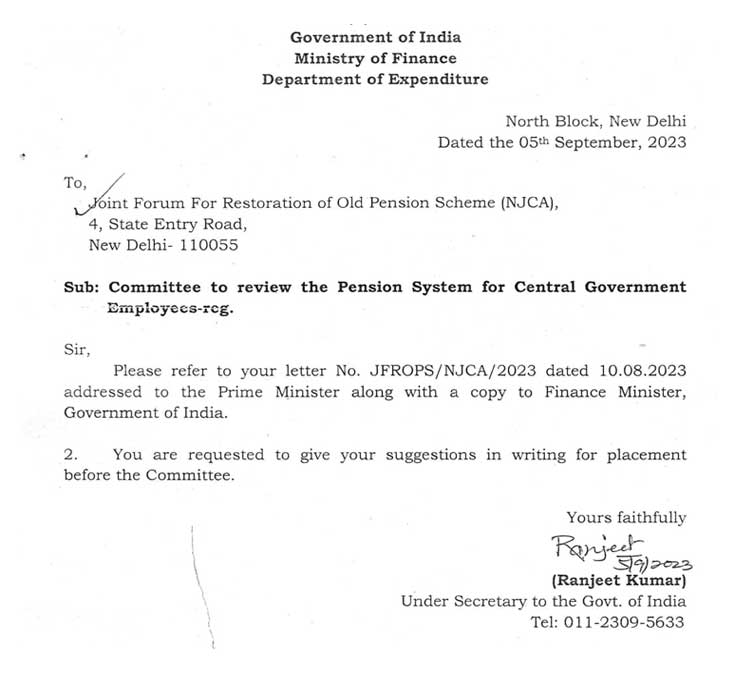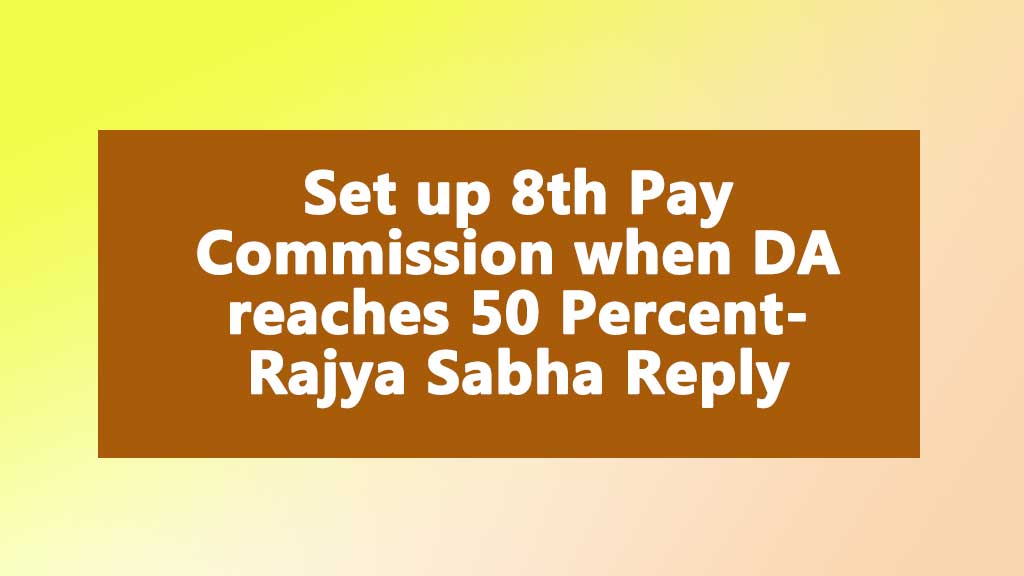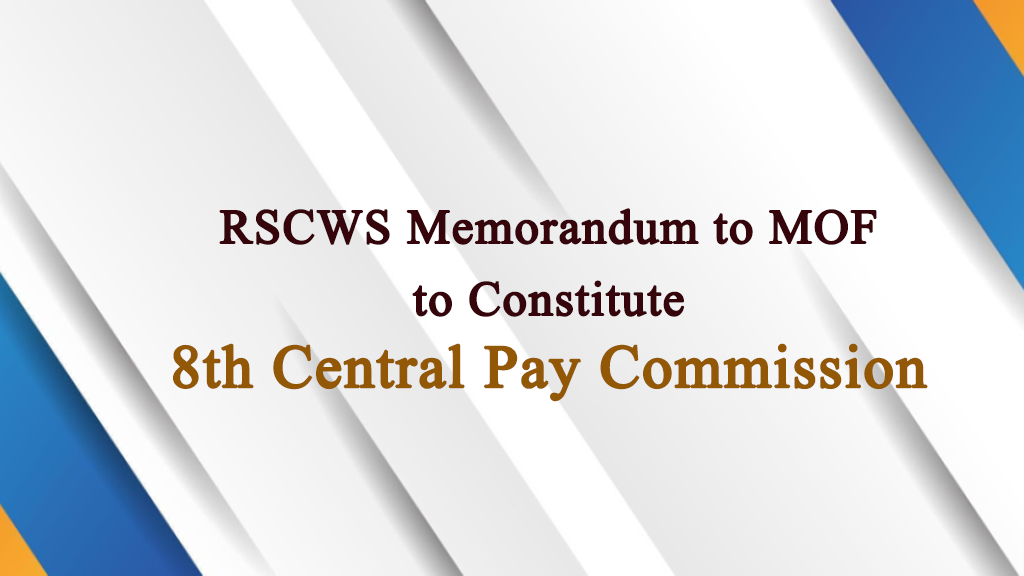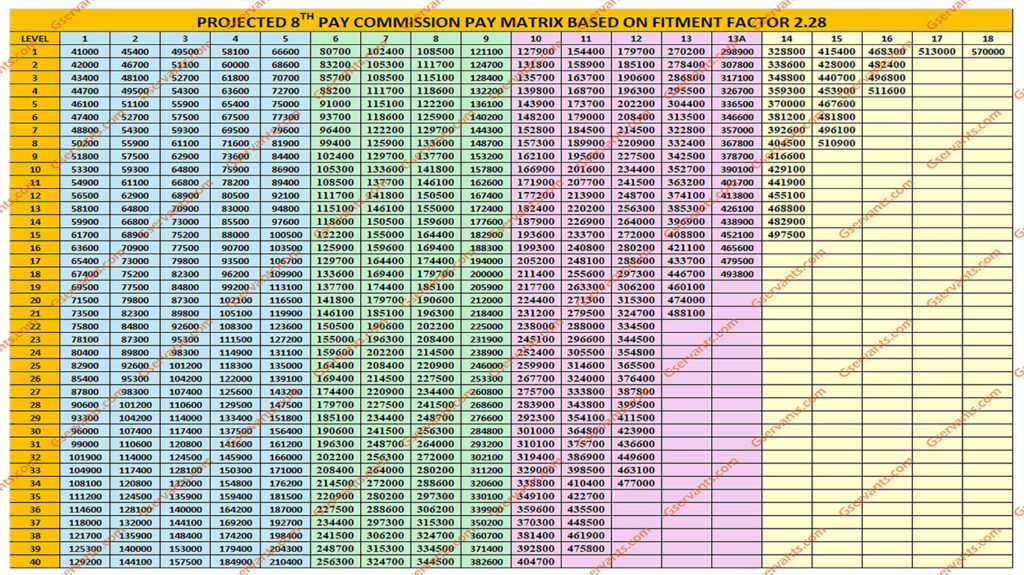Confederation’s Call for the 8th Central Pay Commission
The Confederation of Central Government Employees has called for the 8th Central Pay Commission, emphasizing it as a crucial step to ensure timely and fair wage revisions.
The Confederation of Central Government Employees and Workers recently submitted a request for the constitution of the 8th Central Pay Commission (CPC) to the Hon’ble Prime Minister of India. Representing nearly 7 lakh employees across various government sectors, the Confederation has highlighted critical issues, including wage stagnation, inflation, and the rising cost of living, urging immediate action.
Why the 8th Central Pay Commission is Essential
Erosion of Real Wages
The wages of Central Government employees were last revised on January 1, 2016 (under the 7th CPC). Over the past nine years, the value of wages has eroded significantly due to inflation and the aftermath of the COVID-19 pandemic. As of July 2024, the Dearness Allowance (DA) entitlement has already crossed 53%, showcasing the inflationary pressures faced by employees.
Inflation and Living Standards
Inflation rates, ranging between 4-7% in recent years, have resulted in a sharp rise in the prices of essential commodities, health services, housing, and education. The NSSO data reveals that household consumption expenditure has doubled between 2011-12 and 2022-23, but salaries have not kept pace. This disparity is impacting the quality of life for employees and pensioners alike.
Wage Revision Frequency
Unlike Central Government employees, wage revisions in Public Sector Undertakings (PSUs) and banks occur every five years. The Confederation argues that similar provisions must apply to government employees to ensure fair compensation.
The Government’s Role as a Model Employer
The Central Government, being the nation’s largest employer, must set a benchmark for fair wages and living standards. A sound pay structure is essential to:
- Attract and retain talent in government services.
- Enhance efficiency and accountability among employees.
- Enable employees to deliver better governance and services to the public.
The Confederation emphasized that providing a comfortable living wage will motivate employees to work effectively, thereby benefiting governance and implementation of public programs.
Economic Growth and Government Capacity
India’s economy is on an upward trajectory. The IMF projects India to become the world’s 3rd largest economy by 2027 with a GDP exceeding $5 trillion. This growth demonstrates the government’s capacity to ensure that its employees are adequately compensated in line with economic progress.
Key Concerns Addressed in the 7th CPC
The 7th Central Pay Commission highlighted that government employment is not just a contractual arrangement but a status. Employees expect dignity, fairness, and adequate compensation for their roles. The Confederation reiterated this concern, quoting Supreme Court observations that a “model employer” must nurture trust and fairness to retain employee morale and efficiency.
Moving Forward with the 8th CPC
With inflation eroding real wages and living costs soaring, the need for the 8th Central Pay Commission is both urgent and justified. By revising pay scales every five years, the government can ensure fair treatment, dignity, and efficiency for its workforce. The Confederation’s request echoes the aspirations of millions of Central Government employees and pensioners, urging the government to act swiftly to address these concerns.
“Fair wages for employees aren’t just a necessity—they’re a step toward good governance and national progress.”






No reminder is warranted to set up 8th cpc as central govt knows pretty well inflation is eroding badly wages and prices of essential commodities are soaring. The silver lining is: imf projected bharat to become 3rd largest economy surpassing all other economic powers by 2027! This is the solid capacity to bear additional burden.
Be quiet, the govt will make employees and pensioners hilarious when the budget for 2025-26 is tabled in february.